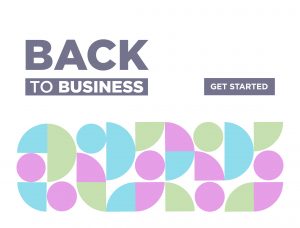Small businesses can be targets for fraudsters at any time. CPA Canada’s 2020 Fraud Survey found that 34 per cent of Canadians have been the victims of online, credit card, and other fraud. It’s important to be especially vigilant during a crisis like COVID-19, when criminals prey on people’s fears and try to profit from uncertainty and panic.
Scams have surfaced that try to take advantage of new government programs, the high demand for certain products, the increase in online activity and remote working, and the general financial uncertainty.
Here are a number of scams you and your employees should be aware of.
Government Program Scams
Since the launch of the Canada Emergency Response Benefit (CERB) and other government support programs, a number of related scams have come to the attention of the Canadian Anti-Fraud Centre. These scams, which can target businesses as well as individuals, include:
- Unreliable companies offering to help complete applications for government programs
- Links to fake application forms and websites that look like official government sites and aim to steal personal and financial information
- Identity theft scams where criminals use your personal information to sign-up for government support and receive payments
How to Protect Yourself
Be alert to potential scams, and always check with official government websites before giving away any of your information. The CRA and other government agencies will never demand immediate payment.
Phishing Emails, Calls, and Texts
Phishing is the practice of pretending to be a legitimate organization in an email, phone call, or text message to dupe people into giving up some personal information or making an urgent payment. Emails, for example, may include a link to a fake website that will then try to get you to fill out some sort of form. Calls may ask you to confirm credit card or bank details.
During COVID-19, scammers have been sending emails that look like they are from the World Health Organization or the Public Health Agency of Canada. The emails include a link to a website they say has important information about the crisis. Other unsolicited communications offer financial relief or government compensation.
Scammers pretending to be from the Public Health Agency of Canada have also contacted people with fake COVID-19 test results. They ask for confirmation of your health card and credit card numbers in return for a prescription.
As well as mass phishing scams, fraudsters can also use publicly available information about your business and employees to create highly targeted phishing communications aimed at your business.
How to Protect Yourself
Never click a link in an email from an address or organization you don’t recognize or that is unsolicited. Check the sender’s email address and the URL of the link in the email as they will often contain unusual strings of letters and/or numbers. Poor grammar and spelling is also a common giveaway that an email is a scam. Never give out financial and other personal information, or feel pressured to take an action like make a payment, in response to an unsolicited message.
Threats From Remote Working
If you and your employees have started working from home during COVID-19, you may be more at risk from cyber-crime. Remote working can result in security challenges if employees are using their own computers, mobile devices, and email accounts to access information relating to your business. Risks include:
- Weaker security if computers and devices are not updated centrally
- Insecure password practices on personal computers
- Sensitive business information being stored on personal computers
- Information being sent over vulnerable wi-fi connections
How to Protect Yourself
Understand the threats to remote workers and put in place policies and procedures around the use of personal computers, secure passwords, and the storage and sharing of company information. Educate employees on the dangers of phishing and other scams.
Other COVID-19 Scams
Other COVID-19-related scams that could target your business, and that have been reported to the Canadian Anti-Fraud Centre, include:
- Fake charities asking for donations for victims, health-related products, or research
- Dubious offers, such as miracle COVID-19 cures, vaccinations, or testing
- Misleading online ads selling in-demand products such as face masks, cleaning products, and hand sanitizers
- Fake cleaning companies offering products they claim protect against COVID-19
- Fake financial service companies offering business loans and other services
- Fraudsters pretending to be utilities companies who threaten to cut you off if you don’t make a payment
- Door-to-door sales scams claiming to offer products that protect against COVID-19
How to Protect Yourself
Keep up-to-date with the latest scams, and what to do to protect yourself, your employees, and your business, through the Canadian Anti-Fraud Centre website. General rules for protecting yourself include being wary of unsolicited communications, using secure passwords, and never feeling pressured to take some sort of action. And remember, if an offer or something else seems too good to be true, it probably is.
If you think you’ve been the target or victim of a COVID-19 scam, report it to the Canadian Anti-Fraud Centre or the police.
Find Out More

At Small Business BC, we’re committed to helping business owners reopen in a safe and successful way. Our Back to Business campaign features specific advice and guidance in the following areas:
- Operational Health & Safety
- Restart Strategy
- Marketing & Communications
Alternatively, visit our BC Business COVID-19 Support Service and connect with our Business Advisors to get answers to your specific questions on reopening.